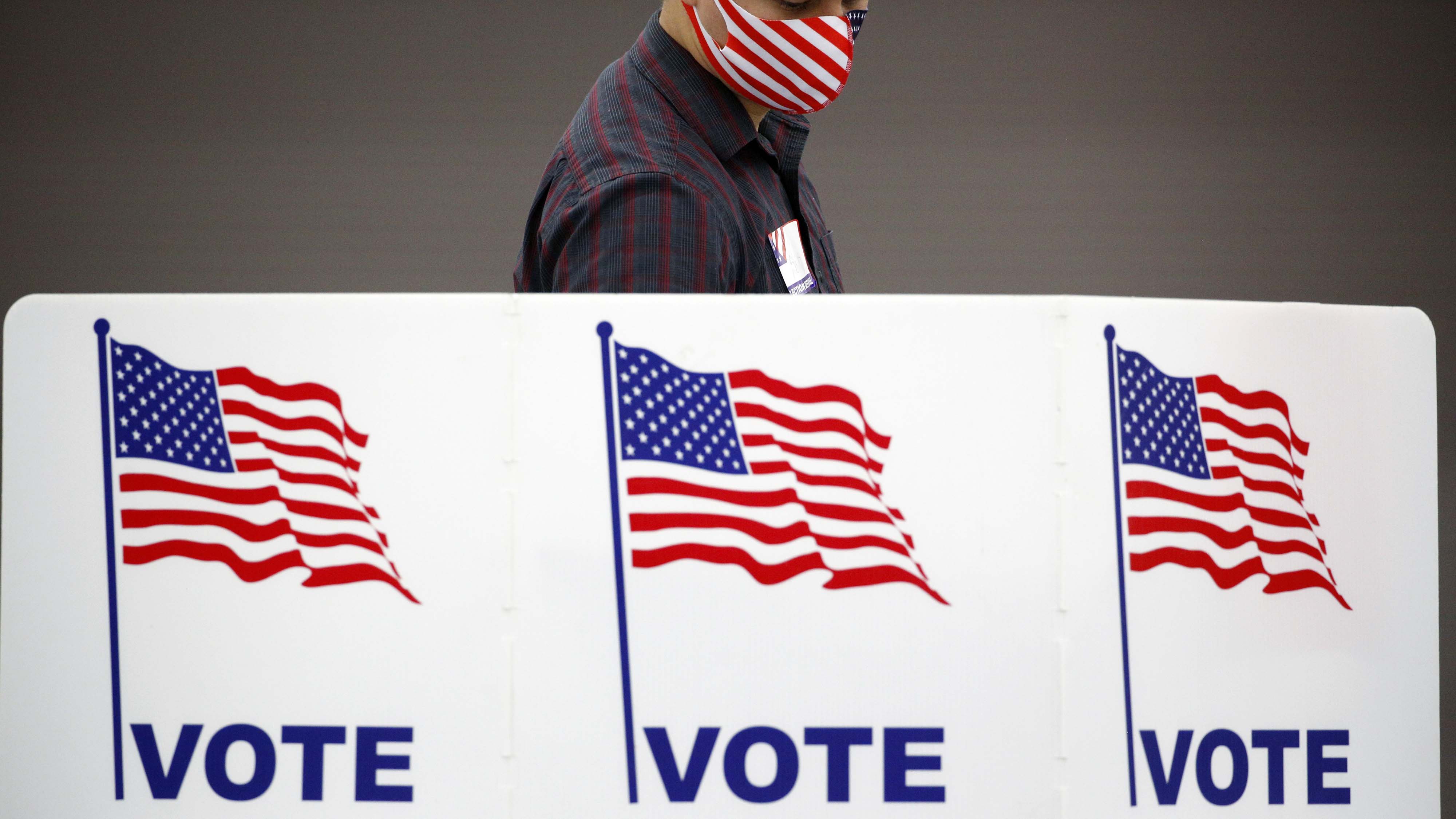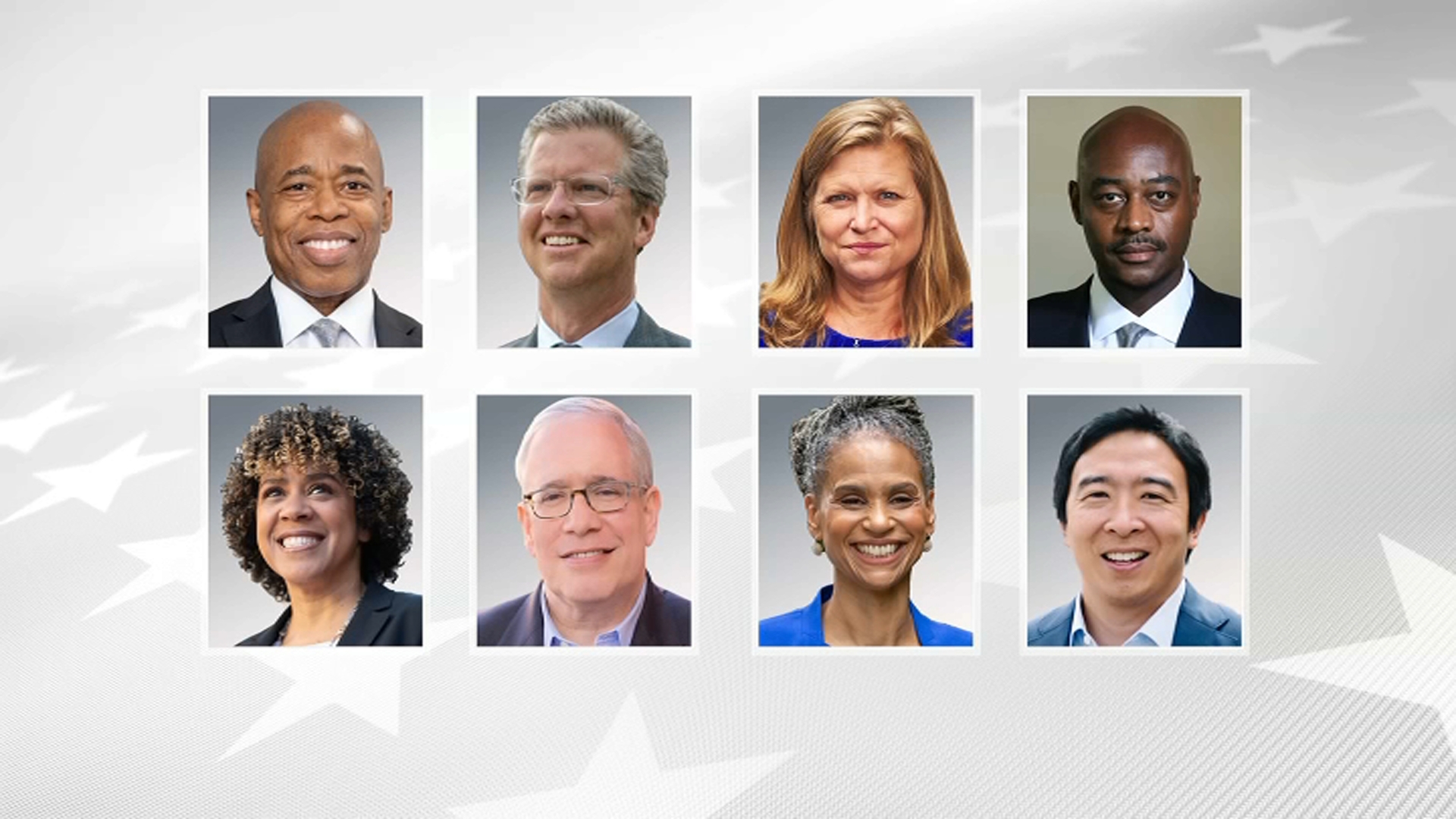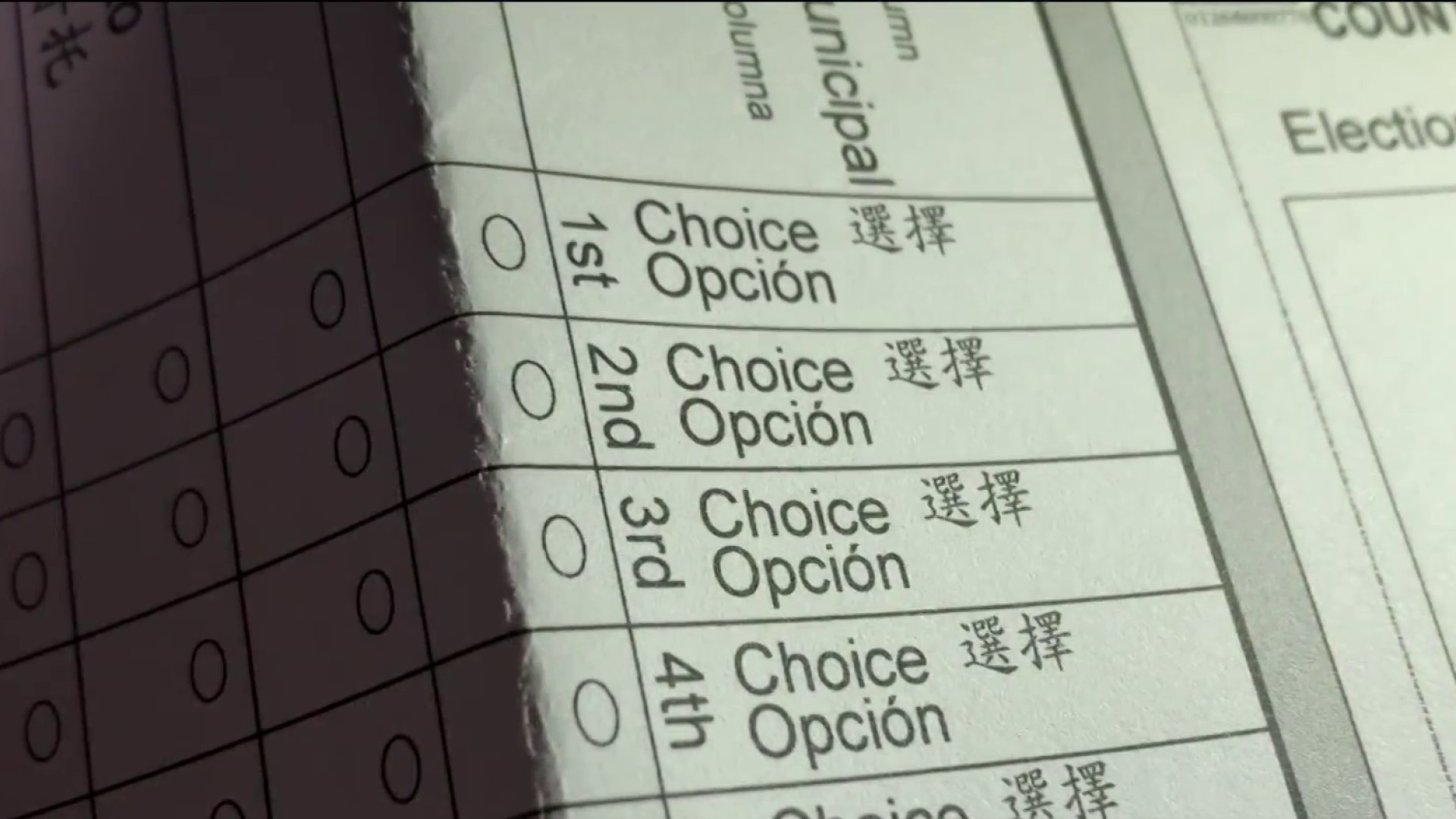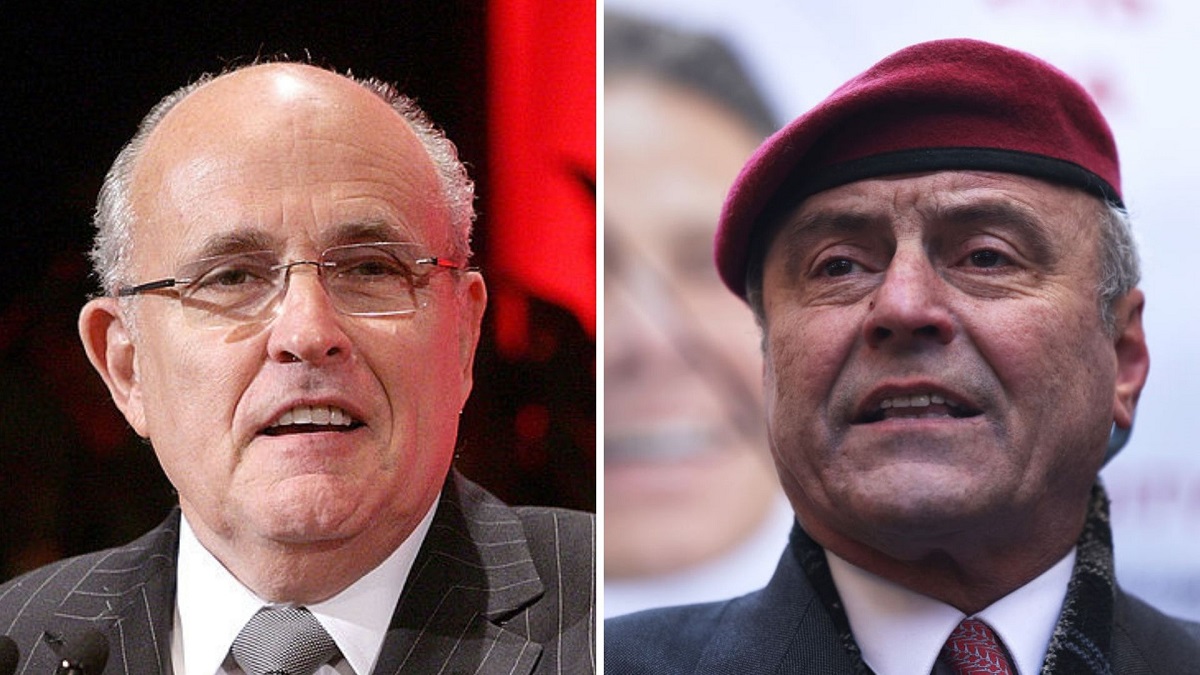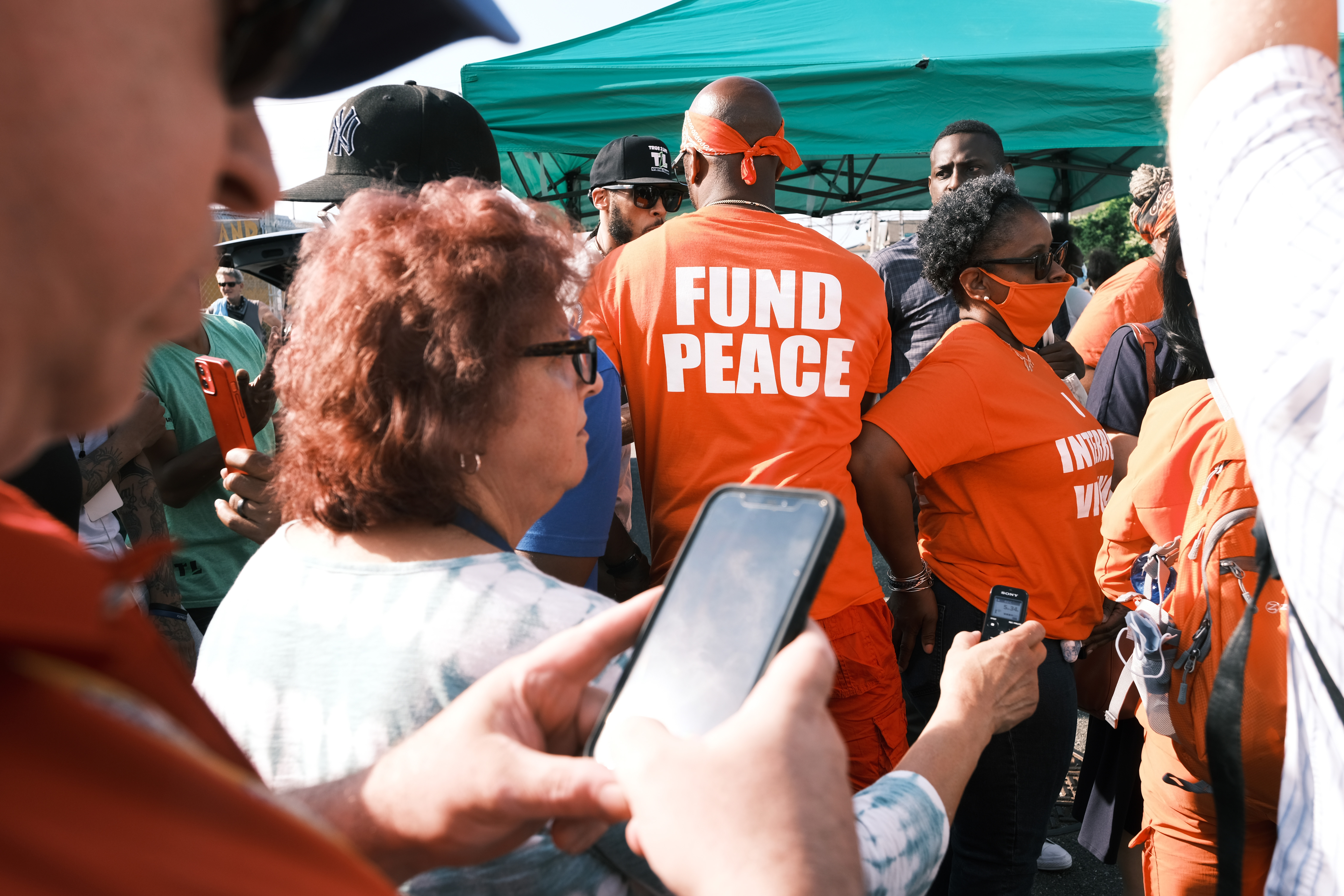What to Know
- Tuesday's primary election marks the first done by ranked choice voting in New York City; voters were given the opportunity to rank up to five candidates in their order of preference rather than selecting just one
- That process means it could take weeks to finalize the votes; we should get unofficial results for in-person first-choice votes on Tuesday night; a week later, the Board of Elections runs the ranked choice voting tabulation and releases another set of unofficial results
- Absentee ballots are calculated a week after that; aside from the high-profile race for NYC mayor, other key races to watch include the Manhattan borough president and DA contests and NYC comptroller
The votes are in. The polls are closed. But some of the 13 Democratic contenders may have a long, anxious wait ahead of them for accurate results in New York City’s mayoral primary, the first citywide election to use ranked choice voting.
Several candidates in the race to succeed Mayor Bill de Blasio have the potential to make history if elected. The city could get its first female mayor or its second Black mayor, depending on who comes out on top, but the hope for the first Asian mayor has faded as Andrew Yang conceded shortly after the polls closed Tuesday night.
In the crowded field to determine the Democratic candidate for mayor, Brooklyn Borough President Eric Adams, a former police captain who co-founded a leadership group for Black officers, held a small lead over former city sanitation commissioner Kathryn Garcia and former de Blasio administration lawyer Maya Wiley.
Get Tri-state area news and weather forecasts to your inbox. Sign up for NBC New York newsletters.
At their respective campaign parties, all three of those candidates and their supporters sounded hopeful if not downright celebratory. While Garcia's campaign said they were excited about the results, they said it was too soon for anyone to be celebrating until all the ranked choice ballots are counted, adding that they will be waiting patiently for those final numbers.
Decision 2021
“This has been an amazing journey,” Adams told reporters after voting in Brooklyn earlier in the day, emotionally recounting how his path into both law enforcement and politics began at age 15, when he was beaten by police officers. “A little boy, laying on the floor of the 103rd Precinct, assaulted by cops, now could become the mayor to be in charge of that same police department.”
After casting his ballot, Adams predicted that he would win the Democratic primary, but also promised to accept the result if he did not. At his campaign party later Tuesday night, most of his supporters sounded more celebratory than many of the other candidates'.
Meanwhile, Wiley danced with staff and supporters as Beyoncé played at her party in Crown Heights — a different site from earlier in the day, when she was losing her voice greeting voters near her polling place in Brooklyn.
Former presidential candidate Andrew Yang, who was far behind in early returns, conceded about two hours after polls closed and vowed to work with the next mayor.
Besides Adams, Garcia, Wiley and Yang, other contenders in the Democratic contest included City Comptroller Scott Stringer, former U.S. Secretary of Housing and Urban Development Shaun Donovan, former Citigroup executive Ray McGuire and nonprofit executive Dianne Morales.
Each of those candidates were far behind the others as the initial results came in, and addressed supporters after polls closed, although none immediately conceded. Stringer got a surprise, last-minute boost from Rep. Alexandria Ocasio-Cortez on Tuesday, after she said she put him down as her No. 2 choice. But that support may be too little, too late for Stringer's chances.
In the Republican primary, Guardian Angels founder Curtis Sliwa faced off against businessman Fernando Mateo. Because there are only two candidates in that race, ranked choice voting wasn’t a factor, as Sliwa was projected to win the primary just before 11 p.m. Tuesday.
De Blasio, a Democrat, leaves office at the end of the year due to term limits.
When Will a Winner Be Declared?
Ranked choice means voters got the opportunity to rank up to five candidates in order of preference rather than selecting just one. It means voters who rank more candidates have more individual impact in various races than in the past. It also means that — when paired with a mountain of absentee ballots still at least a week away from being counted — it could be July before a winner emerges in the Democratic contest.
After polls closed at 9 p.m., New York City’s Board of Elections began releasing partial results of votes cast in person. It is important to note that the picture could be misleading because it will only include data on who voters ranked as their first choice. Track live results here as they become available.
Vote tabulation will then be done in computerized rounds, with the person in last place getting eliminated each round, and ballots cast for that person getting redistributed to the surviving candidates based on voter rankings. That process continues until only two candidates are left. The one with the most votes wins.
It won’t be until June 29 that the Board of Elections performs a tally of those votes using the new system. It won’t include any absentee ballots in its analysis until July 6, making any count before then potentially unreliable. More than 87,000 absentee ballots had been received by the city as of Monday, with more expected to arrive in the mail over the next few days.
The ranked choice system, approved for use in New York City primaries and special elections by referendum in 2019, lets voters rank up to five candidates on their ballot.
Decision 2021
On the Issues
Concern over a rise in shootings during the pandemic has dominated the mayoral campaign in recent months, even as the candidates have wrestled with demands from the left for more police reform.
As a former officer, but one who spent his career fighting racism within the department, Adams may have benefited most from the policing debate.
He denounced the “defund the police” slogan and proposed reinstating a disbanded plainclothes unit to focus on getting illegal guns off the streets.
Wiley and Stringer, battling for progressive votes, both said they would reallocate a portion of the police department’s budget to other city programs.
Of the top contenders, either Garcia or Wiley would be city’s first female mayor if elected. Adams or Wiley would be the second Black mayor. Yang would have been the city’s first Asian American mayor.
Yang and Garcia formed an alliance in the campaign’s last days in an apparent effort to use the ranked voting system to block Adams. The two held several joint campaign events, with Yang asking his supporters to rank Garcia as their No. 2 — though Garcia did not quite return the favor, not telling her voters where to rank Yang.
Adams accused his two rivals of “saying we can’t trust a person of color to be the mayor of the city of New York.”
No matter who comes out of the Democratic side, they will be heavily favored to become the next mayor. Sliwa doesn't have much of a chance to win the November general election in a city where registered Democrats outnumber Republicans by 7 to 1. Former allies, he and Mateo traded personal insults and tried to shout over each other during one debate on Zoom.
Sliwa, a radio host who still wears his red Guardian Angels beret when he appears in public, got an endorsement from former Mayor Rudy Giuliani, who called him “my great friend” in a robocall to Republican voters.
Flanked by Giuliani at his victory party, Sliwa promised a general election campaign focused on crime. “This is going to be a campaign clearly in which I talk about cracking down on crime, supporting the police, refunding our heroes the police, hiring more police, taking the handcuffs off the police and putting it on the criminals, and restoring qualified immunity to the police so that they can’t be personally sued,” he said.

